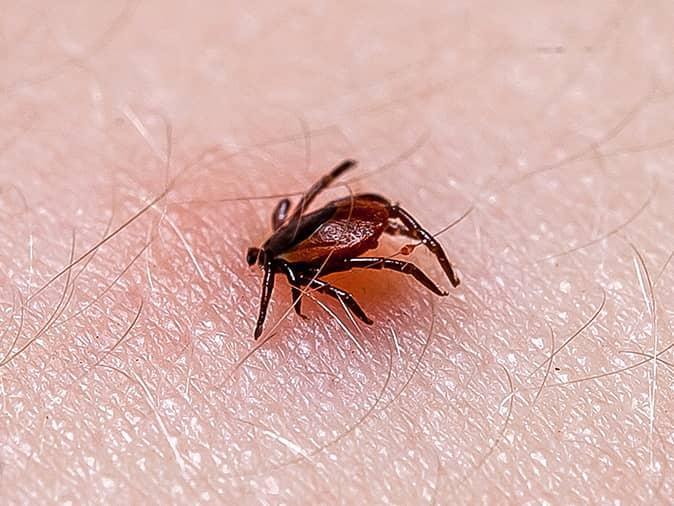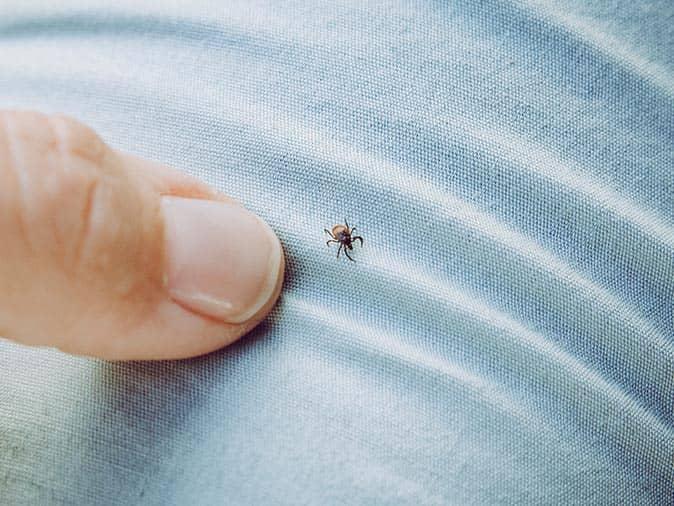Six Common Questions About Mice That Infest New Jersey Homes
Ah yes, it’s that time of year again. Chilly mornings are just a sign of what’s to come. It won’t be long before the chill persists through the day, the leaves change color and fall, and mice increase their efforts to secure warm lodgings for the winter. Unfortunately for many homeowners in New Jersey, there’s a good chance that they’ll end up with mice in their garages, attics, and elsewhere in their homes and that leads us to the topic of today’s blog: 6 Common Questions About Mice In New Jersey Homes.

How do you know if you have mice?
Though they may hide in obscure, hard to see or reach areas, there are signs of mouse infestation to look out for.
Signs of mice you may see, smell or hear:
- Nest or nesting materials
- Boxes with holes gnawed in them
- Insulation that has been gnawed on or contaminated with urine and feces
- Food pilfered from your kitchen or trash found in out-of-the-way places, such as inside shoes or in the back of closets or cabinets
- Mouse droppings (small droppings shaped like grains of rice with pointed ends)
- Tiny hairs
- Noticeable grease marks or runways (narrow pathways where dust and dirt have been swept clean)
- Strong ammonia-like smell which is mouse urine
- Decomposing mice in the walls may give off an odor that has been compared to the smell of methane, sulfur dioxide, and other harmful gases.
- Scratching noises (primarily at night) coming from wall voids, ceilings, and floor cavities
How quickly do mice breed?
A good rule of thumb as it relates to mice in New Jersey, where there’s one, there’s sure to be more. Mice are prolific breeders, the typical female has up to 10 litters per year and each litter produces up to six babies – that’s 60 new mice each year!
How do mice get inside my home?
According to the CDC, mice can fit through holes that are the size of a nickel. That’s less than an inch in diameter! That means if there’s any gap or opening in the exterior of your home that is about an inch wide, it could be a potential entry point for destructive mice. These rodents may also find smaller holes on the exterior and gnaw on the building until the opening is larger.
It’s not just the ground level that homeowners need to focus on when looking for holes. Mice and rats both use wires and cables that connect to houses from poles as bridges and will make their way inside through openings that are higher up. They’re also excellent jumpers and climbers and will use their skills to find holes at any height.
How long do mice live?
In their natural environment mice do not live long, typically up to one year. If they find their way into a home or building with ideal conditions, they have a better chance of surviving. In fact, mice may potentially live up to three years inside. That’s a long time and a lot of babies (180 if you do the calculations).
How do you know if you have mice or rats?
While they’re both rodents with a similar look and modus operandi when it comes to invading your home, there are some key differences that can help you identify which pest is invading.
- Mice are smaller than rats, about 7 ½ inches in length including the tail. Norway rats and roof rats (the most common types of rats in New Jersey and the U.S.) measure about 14 to 16 inches in length.
- Mice have triangular snouts whereas rats have snouts that are blunter.
- Mice have hairy tails that are long and thin. Rats, on the other hand, have hairless tails that are long and scaly.
When are mice most active?
This question has a two-part answer. First, mice are primarily nocturnal creatures and scurry about in the night looking for food and water. It is not unheard of to see mice during the day but this could be a sign of a large infestation.
As for the time of year when mice are most active in and around homes – the answer is typically during the colder months. Their need for food, warm shelter, and protection increases as the temperatures drop and so they make their way inside in search of the necessary elements needed to survive.
What to do if you find a mouse in the house?
We know we said this blog will answer six of the most common questions about mice but we’ve thrown in a bonus one! If you discover a mouse in your home or several (because that’s likely the case), contact Arrow Pest Control right away. Serving Edison, Short Hills, and Chatham as well as communities throughout Essex, Hudson, Mercer, Middlesex, Monmouth, Morris, Ocean, and Somerset counties, our New Jersey rodent control services are designed to eliminate mice and rats from homes AND stop them from re-infesting.

Testimonials
Request Your FREE Estimate
Additional Services
Our solutions are designed for even your toughest pest problems.
Don’t let pests affect your quality of life, here's how we can help:



